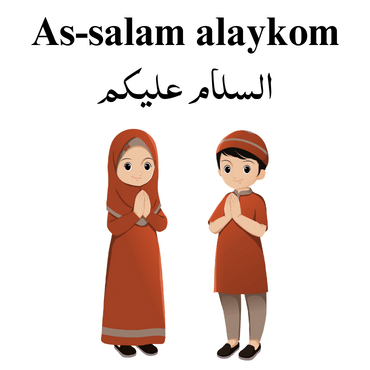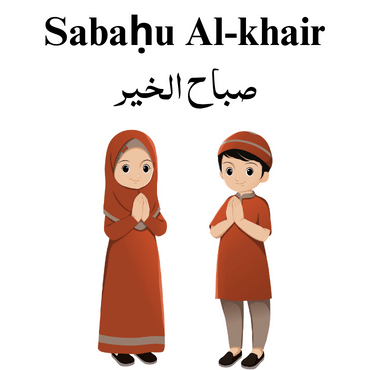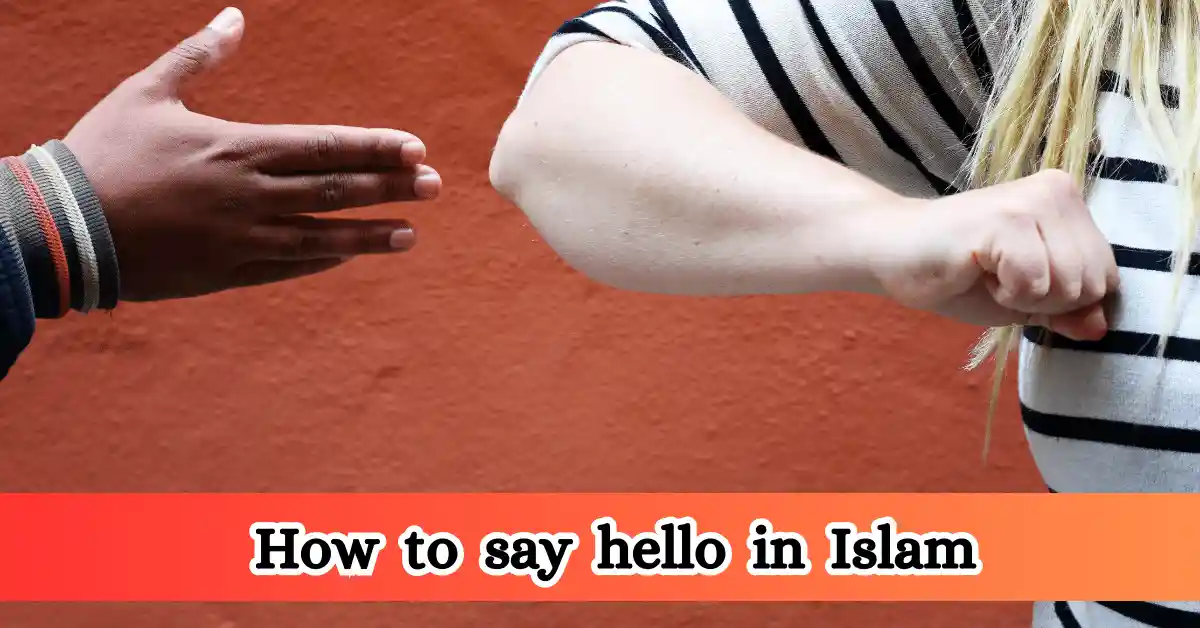Do you want to know how to say hello in Islam? Whether you are a new Muslim or not but want to meet Muslim friends, how should you say hello to them? Are there any alternative words to say hello in Islam? Let us tell you about it in detail.
How to say hello in an Islamic greeting
As-salam alaykom

The most commonly used word to say hello to another man or woman in Islam is As-salam alaykom. These words mean “peace be upon you”. In other words, you want the safety of the person you meet, so you pray for his well-being as soon as you meet him.
In Islam, it is a perfect practice to say As-salam alaykom to someone. Indeed, the person who says these words to someone else first is closer to Allah. In Arabic, these words are pronounced like this: “السلام عليكم”
Wa Alykom As-slam

Some words are also offered in exchange for As-salam Alaikum. If you say As-salam Alaikum to someone, the other person will say Wa Alykom As-slam to you in return. If someone greets you first, you will say Wa Alykom As-slam in return.
This is the beauty of the religion of Islam in that it commands those who pray for peace to pray for peace in return, thus creating feelings of love and compassion. In Arabic, these words are pronounced like this.
“وعليكم السلام”
Time-Based Islamic Greetings
Sabaḥu Al-khair

Similarly, Sabah-ul-Khair is said to meet someone in the morning. These words are equivalent to saying good morning. They can be used from morning until before noon.
In Arabic, these words are pronounced like this: “صباح الخير”
“Sabahul Khair“ (صباح الخير) is an Arabic phrase commonly used to wish someone a good morning. Here’s a breakdown of the components of the words:
- Sabah (صباح): Morning
- Al-Khair (الخير): Goodness
Translation: “Good morning“ or “Morning of goodness.”
Usage:
- This greeting is used to wish someone a good start to their day.
- It is a polite and positive way to greet others in the morning.
Response:
- The typical response to “Sabahul Khair“ is “Sabahul Noor“ (صباح النور), which means “Morning of light“ or “Morning of brightness.”
These morning greetings are a cultural tradition in many Arabic-speaking and Muslim-majority regions, reflecting the emphasis on positive and respectful interactions in Islamic manners.
Sabaḥu An-Nur

When someone says Sabah-ul-Khair to you, you will say Sabah-ul-Noor in response, which means you will also say good morning to him.
In Arabic, these words are pronounced like this: ” صباح النور“
Masa’u Al-khair

Masa’u An-Nur

When a friend greets you in the afternoon or evening hours, you will greet him like this in response Masa’u An-Nur.
In Arabic, these words are pronounced like this: “مساء النور“
“Masā’u An-Nūr“ (مساء النور) is an Arabic phrase used to wish someone a bright or enlightened evening. Here’s a breakdown of the components of the words:
- Masā’u (مساء): Evening
- An-Nūr (النور): The light
Translation: “Bright evening“ or “Evening of light.”
Usage:
- This greeting is used to wish someone well in the evening, explicitly emphasizing brightness or light.
- It is a positive and culturally warm way to greet others as the day transitions into the evening.
Response:
- In response to “Masā’u An-Nūr,“ someone might reciprocate with “Masā’u Al-Khayr“ (مساء الخير), meaning “Good evening“ or “Evening of goodness.”
These evening greetings are part of cultural and social traditions in many Arabic-speaking and Muslim-majority regions, reflecting the importance of positive and respectful interactions in Islamic manners.
Additional Islamic Greetings
Salam
Just as you would say hi to a close friend, you can use the short form of salam, which is the short form of Salam Alaikum. In Arabic, these words are pronounced like this: “سلام”
Marḥaban
In Arab countries, these words are used when meeting someone Marḥaban. These words are often used when you meet someone from another religion. In Arabic, these words are pronounced like this: مرحبا
Ahlan
These words are used when you welcome someone forward “أَهلا.”
And if someone greets you with the words of Ahlan, you will say it in response to Ahlan Wa Sahlan. In Arabic, these words are pronounced like this:” أهلا وسهلا.
